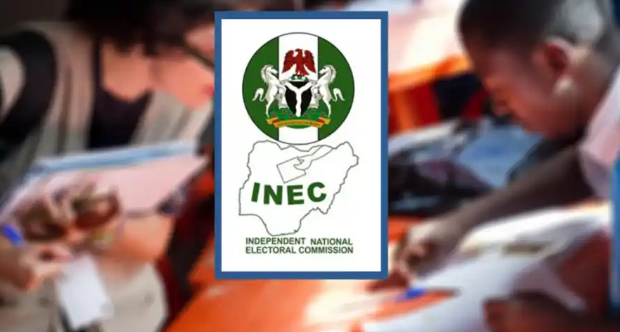The Independent National Electoral Commission, INEC, has lamented the growing wave of election-related insecurity across the country, expressing fears that the trend, if not checked, could lead to the cancellation or postponement of the forthcoming general polls.
Noting that the development could hinder the declaration of election results and precipitate a constitutional crisis, the electoral umpire called for concerted efforts to stem the tide of violence.
Chairman, Board of The Electoral Institute TEI, INEC’s training arm, Professor Abdullahi Abdu Zuru, made the observation, yesterday, in Abuja at the validation of election security training resources.
Last month, INEC decried waves of attacks on its offices and facilities since releasing data detailing 50 attacks across 15 states, namely: Imo (11), Osun (7), Enugu (5), Akwa Ibom (5), Ebonyi (4), Cross River (4), and Abia (4), Anambra (2), Taraba (2), Kaduna (1), Borno (1), Bayelsa (1), Ondo (1), Lagos (1), and Ogun (1).
Speaking when he appeared before the House of Representatives ad-hoc committee investigating attacks on the facilities of the commission, recently, INEC chairman, Professor Mahmood Yakubu, said the conduct of the 2023 elections might be affected if attacks on its offices continued.
He consequently, called on security agencies to continue to provide safety around the facilities.
Currently, there are pockets of violence and insecurity across the country with banditry and kidnapping in the North-West and parts of the North-Central; Boko Haram insurgency in the North-East; killings by unknown gunmen and clashes between security agencies and separatists in the South-East among others.
Lamenting that insecurity might halt the general polls, Professor Zuru said: “We all appreciate the fact that election security is vital to democratic consolidation through the provision of enabling environment for the conduct of free, fair, credible and inclusive elections and thus strengthening the electoral process.
“Consequently, in preparations for the 2023 general elections, the Commission is not leaving anything to chance in ensuring that intensive and extensive security is provided for election personnel, materials and processes.
“This is particularly significant to the Commission given the current insecurity challenges in various parts of the country and the fact that the National Youth Service Corps, NYSC, members constitute the core of the polling unit election officials.
“Moreover, if the insecurity is not monitored and dealt with decisively, it could ultimately culminate in the cancellation and/or postponement of elections in sufficient constituencies to hinder the declaration of elections results and precipitate a constitutional crisis.
“This must not be allowed to happen and shall not be allowed to happen. Therefore, security personnel in particular and all elected officials in general must be security-conscious and alert to unusual activities in their environment and must be fully equipped to deal with any challenge at all times.
“To this end, the National Security Adviser, General Mohammed Babagana Monguno, and the Chairman, INEC have jointly assured the nation that a conducive environment will be provided for the successful conduct of the 2023 general election.
“Similarly, the Inspector-General of Police, IGP, Usman Baba Alkali, has conducted election security management workshops across the six geo-political zones.
“On its part, the Commission, through The Electoral Institute, has institutionalized the development and implementation of a cascaded training mechanism for security personnel as a critical component of its training plan.”
He said that emboldened by the protection offered by the amended Electoral Act, the Commission introduced innovative technologies and procedures and made commitments to Nigerians that continuous verification, accreditation and voting will be conducted at the polling units using the Bimodal Verification and Accreditation System (BVAS) and real-time polling unit-level results will be uploaded on to the INEC Results Viewing (IReV) Portal using the same BVAS.
“These commitments require innovative security strategies and deployments for the protection of voters, election personnel, materials, equipment, the electoral processes as well as the general public and infrastructure.
“These innovative systems and processes minimize human errors and delays in results collation and improve the accuracy, transparency, and credibility of the results collation process thereby ensuring the credibility of the process.
“They were tested during the Ekiti and Osun Governorship elections, held on June 18, 2022, and July 16, 2022, respectively,” he added.
In his welcome remarks, the Director General of The Electoral Institute, Dr Sa’ad Umar Idris, emphasized that the Election Security Training Documents will play a critical role in the effective training of security personnel in securing the electoral environment for free, fair, credible and inclusive elections.
According to him, the four documents to be validated are the electoral security personnel training manual, the electoral security personnel facilitator’s guide, the electoral security handbook, and the basic security in election duty handbook.
In his goodwill message, the Country Director of the International Foundation for Electoral Systems, IFES, Serah Jah, said managing security threats in the electioneering process is a tall order for INEC.
Source: Vanguard



